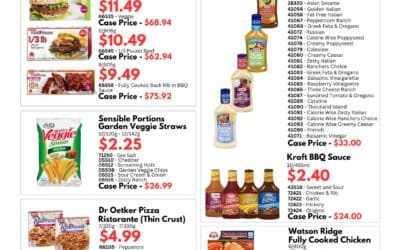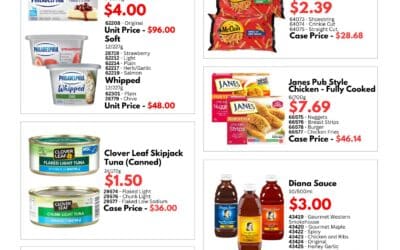We exist in a culture that celebrates being busy — prizing hours logged at the office or school, as well as juggling extracurriculars, hobbies and appointments. In all that hustle and bustle, we tend to sacrifice our relationship with food. Technology, services and products that promise to turn chores like grocery shopping, meal prep and cooking into simpler, quicker and more enjoyable activities are being readily embraced by consumers. Busy individuals have options like meal kits filled with pre-measured ingredients and recipe cards, online grocery shopping with either “click and collect” or delivery options, along with countless take-out delivery service providers to choose from. Even larger grocery retailers such as Longos, Metro and Loblaws are now offering meal kits and “click and collect” services to entice shoppers with the promise of saving time.
A 2018 study by Dalhousie University explored Canadian interest in these types of services and found that almost half of those surveyed did not subscribe to a meal kit service (and didn’t intend to), nor did they intend to purchase their food online — yet despite intentions, the number of people using on-the-go food services is rapidly rising. Many retailers are offering attractive incentives to encourage consumers to try these offerings — loyalty points, discounts and freebies — in the hopes of keeping customers from ordering from services like Uber Eats or Door Dash.
What do these trends really tell us about the relationship between consumers and the food they purchase? Will the shortcuts offered by boxed meal services discourage people from learning how to plan meals, shop for ingredients, do the prep work and essentially cook “from scratch”? Or might they serve as an introduction to culinary adventures, inspire food curiosity and minimize the inhibitions surrounding cooking?
Some argue that these conveniences may create a larger disconnect between the customer and the food industry resulting in something called “agricultural illiteracy,” and in an age of post-production, this illiteracy is growing. The Washington Post reported, “Today many [people] only experience food as an industrial product that doesn’t much look like the original animal or plant.” Agricultural facts known to every human on earth in the past, are being left behind. In fact, 16 million American adults believe chocolate milk comes from brown cows while 40% of 4th to 6th graders didn’t know that hamburger comes from cows.
Perhaps brands should focus on narrating the journey from farm to table like EatWheat.org. Without rekindling our relationship between food and farm, the gap between the food we eat and the way it is made will only grow.
Sources:
https://www.frontiersin.org/articles/10.3389/fcomm.2018.00039/full










